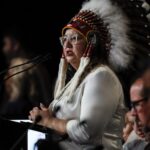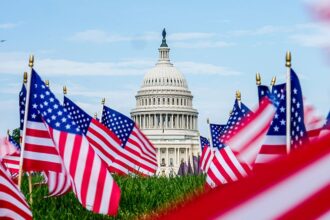The phrase “political correctness” has become both a rallying cry and a pejorative in our cultural discourse. For some, it represents necessary respect for marginalized communities; for others, it symbolizes censorship and the death of free expression. But beyond the heated rhetoric, what do regular citizens actually think about political correctness in 2024? Recent polling reveals some surprising trends across the North American landscape.
When Research Co. and Glacier Media asked Canadians about their views on political correctness last month, the results painted a complex picture of a society in transition. A remarkable 63% of Canadians now believe political correctness is necessary—a 10-point increase from 2018. This shift isn’t happening in isolation, as American attitudes are evolving in parallel, albeit at a different pace.
What’s driving this change? The past six years have seen seismic social movements—from #MeToo to Black Lives Matter to heightened awareness of Indigenous issues in Canada—fundamentally altering how we discuss identity, power, and respect in public forums. These movements have successfully connected language choices to real-world consequences, making what once seemed like abstract “political correctness” feel increasingly concrete for many citizens.
The generational divide is particularly telling. In Canada, support for political correctness reaches 70% among those aged 18 to 34, compared to 57% among those 55 and older. This suggests that younger Canadians, having grown up in more diverse social environments and with greater digital literacy, more readily recognize how language shapes reality. Their American counterparts show similar patterns, though the overall percentages differ slightly.
Geographically, the landscape of opinion varies significantly. Atlantic Canada leads with 72% support for political correctness, followed by Quebec at 67%. Alberta stands as the outlier at 51%, reflecting regional political differences that mirror America’s urban-rural divide. These regional variations remind us that national conversations about language and respect don’t happen in a vacuum—they’re deeply influenced by local histories and demographic realities.
The political alignment is exactly what one might expect. In Canada, 82% of federal Liberal voters and 72% of New Democratic Party (NDP) supporters endorse political correctness, while only 42% of Conservative voters feel the same. Similar patterns emerge in the American political landscape, where party affiliation strongly predicts one’s stance on this issue.
What’s particularly fascinating is the shift among self-identified conservatives. Six years ago, many conservative voices were uniformly dismissive of political correctness. Today, there’s a growing segment of right-leaning voters who distinguish between reasonable sensitivity and what they see as extreme applications—a nuance that wasn’t as evident in previous polling.
The debate around political correctness isn’t merely academic. It manifests in heated arguments about gender-neutral language in government documents, controversial speakers on university campuses, and workplace communication guidelines. When 29% of Canadians say political correctness “has gone too far,” they’re often referring to specific instances where they believe language policing has overshadowed substantive discussion.
However, it’s worth noting that the research shows fewer Canadians feeling this way than in previous years. This suggests that what once seemed radical or excessive is gradually becoming normalized—a pattern we’ve seen repeatedly throughout history as social norms evolve.
The educational divide is perhaps the most telling indicator of where this conversation is headed. Support for political correctness rises significantly with educational attainment, reaching 71% among university graduates. This correlation appears in both Canadian and American data, suggesting that exposure to diverse perspectives and critical thinking tends to foster greater sensitivity to language concerns.
What does this mean for our shared cultural future? The trend lines suggest that political correctness—or perhaps more accurately, thoughtful consideration of how language affects different communities—is likely to become increasingly normalized rather than reversed. The demographic momentum alone points in this direction, as younger, more educated cohorts gain cultural influence.
For those who fear this trend represents the end of free expression, the data offers a more nuanced story. Most supporters of political correctness don’t advocate for censorship but rather for more thoughtful, inclusive communication. The challenge ahead isn’t whether to embrace or reject political correctness wholesale, but how to balance respect with the robust exchange of ideas that democracy requires.
As we navigate these complex cultural waters, perhaps the most productive approach is to move beyond the loaded term “political correctness” itself. What we’re really discussing is how to communicate across differences in a diverse society—a challenge that transcends simplistic political binaries and speaks to our shared humanity.
The question for Canadians and Americans alike isn’t whether political correctness will continue to gain ground—the data suggests it will—but how we can harness this growing sensitivity to build more inclusive communities without sacrificing the candid dialogue essential to democratic life.
For more insights on cultural trends and societal shifts, visit CO24 Culture or explore our deeper analysis of evolving public opinion at CO24 Trends.

























